Food tracking is a great tool to use to help hit fitness and body recomposition goals, and tracking macros is the best way to do that. However, if you want to find your maintenance calories, build muscle, or lean out, we suggest tracking your calorie intake as well. This article briefly goes over tracking, what app works the best, and tips for the most accurate tracking.
Food & Macro Tracking 101
You don’t know what you don’t know. Tracking your food intake gives you data to work with to achieve your fitness and body composition goals. For example, it’s especially important to track your protein intake if you’re trying to build muscle mass, or else you could be wasting your time at the gym. Having a metric awareness of the food you eat allows for a deeper understanding of your ideal macronutrient amounts, maintenance calories, and what foods you love that help you hit your daily macro goals and satiate you the most.
What Is Macro Tracking?
Marco tracking is tracking the three macronutrients, which are the three largest nutrient groups that we need in large quantities for the body to function properly. These three groups are protein, carbohydrates, and fat. Macro tracing is not tracking calories.
Tips For Tracking Macros
Weigh Your Food
The best way to track your macros is by weighing your food. The more you weigh your food, the better you’ll get at eyeballing amounts, so you won’t need to use the scale forever. Anything solid can be weighed on the scale. You can measure liquids with measuring cups. To accurately track your macros, you can search online to find out how many grams of whatever food equates to how many grams of protein, fat, or carbs depending on the ingredient you’re weighing. Using apps makes this process much easier. You can usually input the grams or ounces of an ingredient or food into an app.
Always Track Protein
Protein is the most important macro to track, so if you only track your protein, it’s good enough. Usually, if you are eating enough protein, your other macros will fall into place, especially if you’re eating a whole/natural food diet. In general, 4 oz of meat, or a fist sized amount of meat, is around 25-28g of protein. The best way to track your protein is by weighing it. Weighing raw meat can be cumbersome, so cook your meat separately to weigh it before adding it to the rest of your meal.
Food & Macro Tracking Apps
There are many apps to choose from, however MyFitnessPal is very popular and very user friendly. You can save recipes, foods, and meals that allow for one click tracking. MyFitnessPall also tracks macros and calories. Another benefit to tracking: can look back on your progress, what foods work best for you, and what foods you eat consistently.
Find Your Maintenance Calories
If you’re serious about your fitness progress, body composition, etc. it’s suggested that you find your maintenance calories, along with tracking your macros, Alcohol consumption, water intake, steps, weight fluctuations, workouts, and sleep etc. to do this, make sure you track everything for at least an entire week, even if it’s a treat day. Working with an app really helps for guessing when you’re eating out as well.
The Relationship With Tracking Food & Macros
Food Tracking is an amazing tool that is necessary if you’re serious about your fitness progress. However, food tracking can also lead to a lot of mental stress and negative self-talk. It’s good to sit with yourself and assess if food tracking is right for you. If you want to track without calorie counting, track your macros – especially protein. Just tracking protein is actually a wonderful place to start.
Final Thoughts On Food & Macro Tracking 101
As with anything, moderation is key. A common challenge with food tracking is becoming obsessive with it. And, in life, it’s not good to obsess about anything. If you know it will be hard to be in a good relationship with food tracking, then don’t. You can achieve a great body composition without it. However, if you feel like you can maintain a good relationship with food tracking as JUST data, then it’s a great tool to know how to optimize food to translate into performance and body composition changes.
Want to learn more? Listen to Episode 138 of the Stronger Than Your Boyfriend Podcast: Food Tracking 101



